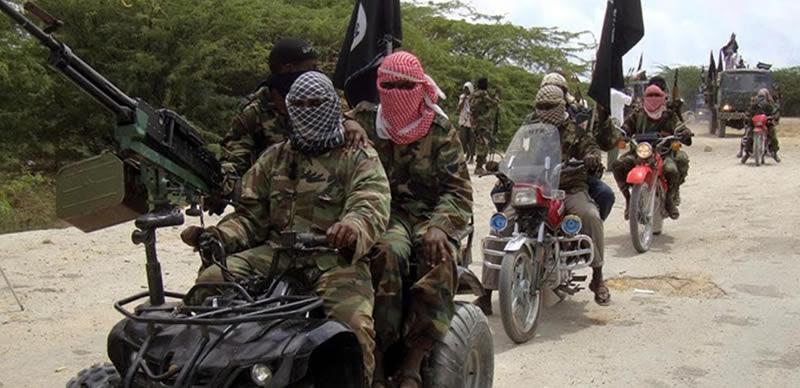The serene tranquility of Izge village in Gwoza Local Government Area, Borno State, was shattered in the early hours of Sunday as suspected Boko Haram insurgents launched a daring assault on a military formation. Details of the attack remain sketchy, with the military confirming the incident but withholding specifics on casualties. Initial reports from security sources, speaking under the condition of anonymity, indicate that the insurgents attempted to overrun the military camp around 1 am but were met with stiff resistance from the soldiers. While the exact number of military casualties remains unconfirmed, sources suggest that several soldiers lost their lives in the fierce confrontation.
The attack on Izge village follows a disturbing pattern of insurgent activity in the region. Just weeks prior, a similar attack targeted a military base in Sabon Gari, Damboa Local Government Area, also in Borno State. On that occasion, which occurred in the evening of March 24th, insurgents unleashed a barrage of gunfire on the military formation, resulting in numerous casualties, including fatalities and serious injuries among the soldiers. Adding to the tragedy, reports emerged of a military reinforcement convoy inadvertently triggering a landmine while rushing to aid the besieged base, leading to further casualties. These recurring attacks underscore the persistent security challenges plaguing the region.
The Chairman of Gwoza Local Government Area, Abba Timta, affirmed the attack in Izge, emphasizing that a significant number of insurgents were killed during the clash. This assertion aligns with claims from military sources, who maintained that while soldiers were indeed killed, the insurgents suffered heavier losses, with many fleeing the scene bearing gunshot wounds. The narrative of the attack takes on a more nuanced dimension with accounts from local residents, who highlight the crucial role played by local vigilantes and hunters in repelling the attackers. According to these accounts, the insurgents, who descended on the village en masse, were forced back by the combined efforts of the military, local hunters, and vigilantes.
The attack in Izge serves as a somber reminder of the ongoing struggle against insurgency in Nigeria’s northeast. While the military consistently reports successes in combating Boko Haram and its splinter groups, the persistence of these attacks highlights the resilience and adaptability of the insurgents. The involvement of local vigilantes and hunters in repelling the attack underscores the critical role of community-based security initiatives in bolstering the military’s efforts. However, the reliance on such informal security arrangements also raises concerns about the long-term sustainability and effectiveness of these strategies.
The recurrent attacks on military installations expose the vulnerability of security forces in remote areas and underline the need for a comprehensive and multi-faceted approach to address the root causes of the insurgency. The military’s efforts to quell the insurgency must be complemented by initiatives that address the socio-economic grievances that fuel recruitment into these groups. Moreover, the involvement of local communities in peacebuilding and reconciliation efforts is essential to achieving lasting peace in the region.
The recurring narrative of attacks, casualties, and counter-offensives emphasizes the urgent need for a sustained and comprehensive strategy to combat the insurgency. This strategy must encompass military operations, socio-economic development, and community-driven peacebuilding initiatives to address the complex drivers of conflict and promote sustainable peace in the region. The engagement of local communities in countering violent extremism is crucial, particularly in providing intelligence and mobilizing support for security operations. While the military plays a vital role in maintaining security, the long-term solution lies in addressing the root causes of the conflict and fostering an environment conducive to peace and development.


